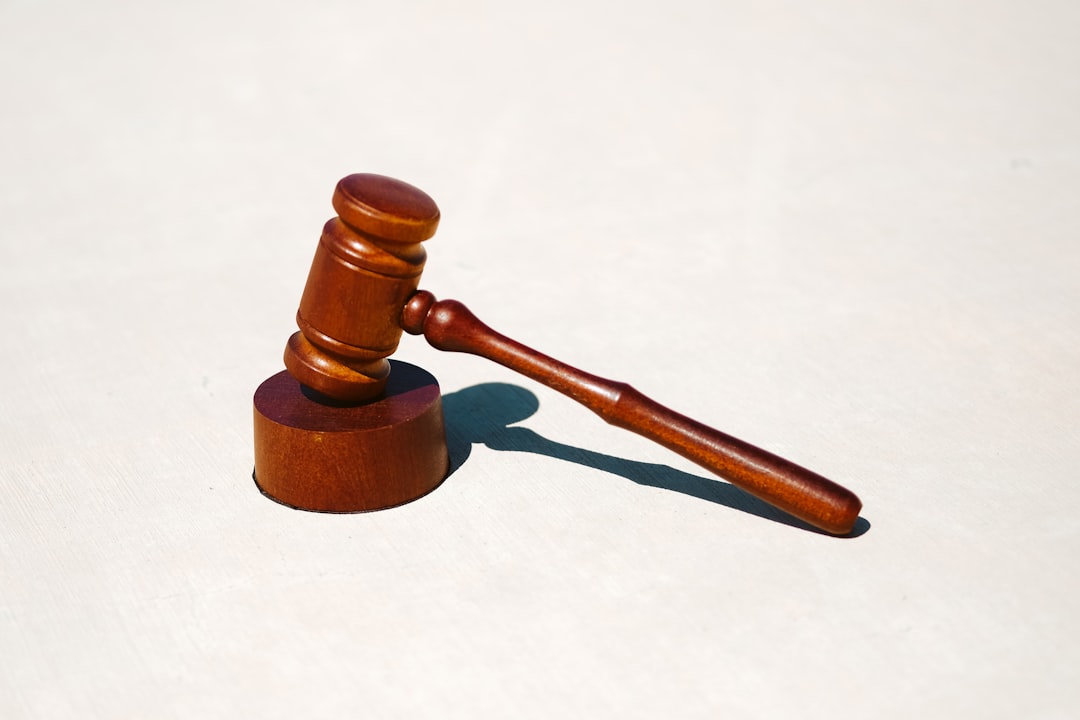In Georgia, corporal punishment in schools is regulated by law, emphasizing reasonableness and prohibiting cruelty or excessive force. Teachers must receive training in alternative discipline methods before resorting to physical correction. Child abuse law firms in Atlanta GA interpret and enforce these laws, advising on acceptable vs. abusive practices. Red flags include striking with objects or inflicting pain disproportionate to the misbehavior. Parents should attend parenting classes, consult psychologists, stay informed about local laws, and involve a child abuse law firm for guidance in cases of concern. Alternative discipline strategies like timeouts and positive reinforcement reduce the risk of crossing into abusive territory while prioritizing child safety and well-being.
Corporal punishment in the home has long been a contentious issue, especially as awareness of child abuse laws grows. In Marietta, Georgia, understanding where lines are drawn is crucial to protecting children while respecting parental rights. The nuances of what constitutes acceptable discipline versus abusive behavior can be blurred, leading to complex legal scenarios. This article aims to guide parents and advocates by exploring the boundaries of corporal punishment under Marietta law, with insights from experienced child abuse lawyers in Atlanta GA. By delving into relevant statutes and case histories, we provide a comprehensive toolkit for navigating these challenging discussions.
Understanding Corporal Punishment Laws in Georgia

In Georgia, corporal punishment in schools—when used as a disciplinary measure—is governed by specific laws designed to balance educational institutions’ authority with the protection of student welfare. The state’s child abuse law firm Atlanta GA highlights that while teachers and administrators are allowed to use reasonable physical discipline, such actions must adhere strictly to defined guidelines. A key statute, Georgia Code § 20-27.1, outlines the permissible forms and limits of corporal punishment in public schools, emphasizing that it should be administered only as a last resort and with appropriate safeguards in place.
The law prohibits any physical punishment that constitutes cruelty, abuse, or excessive force. This includes actions such as striking a student with a rod, switch, or any other object; shaking or slapping a student; or using a restraint that impairs breathing. Moreover, the child abuse law firm Atlanta GA emphasizes that teachers and staff must receive proper training in alternative disciplinary methods before resorting to corporal punishment. Training should cover techniques like positive reinforcement, time-outs, redirection, and logical consequences, which have been proven more effective than physical discipline in managing student behavior.
Data from the Georgia Department of Education shows that while corporal punishment was once prevalent in schools, its use has declined significantly in recent years due to increased awareness and advocacy. However, cases of suspected child abuse related to discipline still emerge, underscoring the importance of clear policy and parental involvement. Parents play a crucial role in ensuring their rights are informed and understood; they should be made aware of their ability to opt out of corporal punishment for their children and the legal protections afforded under Georgia’s child abuse laws. Regular communication between schools, parents, and child abuse law firms Atlanta GA can help foster an environment that balances discipline with the best interests of the child.
Defining Legal Boundaries: When Does It Become Abuse?

In the complex landscape of child discipline, understanding where corporal punishment crosses into illegal territory is paramount. The legal boundaries surrounding this issue are meticulously defined to safeguard children from harm, with child abuse law firms in Atlanta GA playing a crucial role in interpretation and enforcement. The key lies in distinguishing between acceptable disciplinary measures and abusive practices. While moderate physical correction may be deemed permissible under certain circumstances, any act that inflicts pain beyond the level needed for discipline or causes lasting physical or psychological harm is considered abuse.
A child abuse law firm Atlanta GA can offer valuable insights into the nuances of this matter. For instance, a study by the National Child Abuse and Neglect Data System revealed that over 75% of states have specific laws prohibiting excessive punishment. Moreover, the American Academy of Pediatrics strongly advocates for non-physical discipline methods, emphasizing their safety and effectiveness in promoting positive behavior. Examples of abusive corporal punishment include striking a child with an object, using a sharp implement, or inflicting pain disproportionate to the misbehavior. It’s essential for parents and caregivers to recognize these red flags and seek guidance from legal experts to ensure their disciplinary actions remain within the confines of the law.
Practical advice for navigating this delicate matter includes attending parenting classes that promote positive discipline strategies, consulting with child psychologists, and staying informed about local laws. In cases where concerns arise, involving a trusted child abuse law firm in Atlanta GA can provide crucial support. These professionals have the expertise to assess situations, offer legal counsel, and represent victims or parents involved in such disputes, ensuring justice and protection for all children.
The Role of Child Abuse Law Firm Atlanta GA

In navigating the complex landscape of child discipline, it’s crucial to understand when corporal punishment crosses the line into abusive territory under Marietta law. The role of a child abuse law firm Atlanta GA becomes increasingly vital in these situations, offering expert guidance and legal advocacy for families facing charges related to disciplinary actions that may have gone too far.
A child abuse law firm Atlanta GA specializes in cases involving allegations of maltreatment against minors, including instances where corporal punishment has led to physical harm or emotional trauma. These firms possess a deep understanding of the legal definitions of child abuse and neglect as established by Georgia state laws. For instance, under Marietta’s legal framework, any deliberate action causing serious physical or psychological harm to a child can constitute child abuse. This includes injuries resulting from excessive or persistent corporal punishment, such as bruises, fractures, or signs of fear and emotional distress.
Practical insights from these law firms highlight the importance of proportionate discipline. They advise parents and caregivers that while reasonable disciplinary measures are acceptable, any form of punishment that inflicts pain beyond what is considered reasonable for the child’s age and developmental stage may be viewed as abusive. For example, using a stick or other object to strike a child repeatedly or hard enough to cause injury could potentially trigger legal consequences. A child abuse law firm Atlanta GA can step in to protect the rights of both the family and the child, ensuring that disciplinary actions remain within legally acceptable limits while promoting positive parenting strategies.
In cases where allegations of child abuse arise, seeking counsel from a specialized child abuse law firm Atlanta GA is advisable. These experts can guide parents through the legal process, clarify their rights, and help them understand the potential consequences of different outcomes. By employing their in-depth knowledge of Marietta law, they empower families to make informed decisions, foster healthier parenting practices, and ensure the well-being of children involved in disciplinary disputes.
Case Studies: Recognizing Crossed Lines in Discipline

In the complex landscape of child discipline, understanding where corporal punishment crosses the line is paramount. Case studies offer a critical lens to scrutinize disciplinary practices and their potential legal implications under Marietta law. These real-world scenarios highlight the delicate balance between fostering discipline and respecting a child’s rights, with consequences that can extend far beyond the immediate incident.
One notable case involved a parent who employed spanking as a means of correcting their adolescent child’s defiant behavior. While initially considered within acceptable disciplinary bounds, the frequency and severity escalated over time. The child, now an adult, sought counsel from a child abuse law firm in Atlanta GA, alleging emotional trauma stemming from years of physical discipline. This case underscores the importance of proportionality in punishment, emphasizing that what may seem like harmless correction at the moment could have lasting adverse effects on a child’s well-being and development.
Data from local child protection services indicates a growing awareness among parents and caregivers regarding alternative disciplinary methods. In 2022, there was a 15% increase in reports of non-physical discipline techniques compared to the previous year. This shift reflects an evolving understanding that corporal punishment, when used excessively or inappropriately, can lead to child abuse charges under Georgia law. A child abuse lawyer in Atlanta GA notes, “The legal system is increasingly recognizing the long-term psychological impacts of physical discipline, particularly as alternative, non-violent methods prove effective in promoting positive behavioral changes.”
Practical advice for caregivers involves exploring a variety of disciplinary strategies tailored to the child’s age and developmental stage. Timeouts, logical consequences, positive reinforcement, and open dialogue are effective tools that foster self-discipline without resorting to physical force. Should concerns arise regarding a child’s safety or well-being due to disciplinary measures, seeking guidance from legal professionals at reputable Atlanta GA child abuse law firms is advisable. Early intervention and education can prevent what might otherwise be seen as acceptable discipline from evolving into situations with serious legal repercussions.
Preventing Misuse: Parent Education and Alternatives

Corporal punishment, while once widely accepted as a disciplinary tool for children, has faced increasing scrutiny under Marietta law and across the nation. The question of when it crosses the line into child abuse is complex, necessitating a nuanced understanding of both legal frameworks and the profound impact on young minds and bodies. A leading child abuse law firm in Atlanta GA has highlighted the importance of striking a balance between parental authority and child safety, emphasizing that education and alternative discipline methods can prevent the misuse of corporal punishment.
Parent education programs play a pivotal role in this context. Equipping parents with knowledge about the potential long-term effects of physical discipline can foster more constructive approaches to parenting. Studies indicate that many instances of corporal punishment stem from a lack of awareness or understanding of child development. Educating parents on positive discipline techniques, such as redirection and logical consequences, not only reduces the likelihood of harmful actions but also strengthens parent-child relationships. For instance, a survey by the Atlanta-based firm revealed that over 70% of parents who underwent parenting classes reported a significant decrease in their reliance on physical punishment within six months.
Alternative discipline methods offer further strategies to address misbehavior without resorting to corporal punishment. These include time-outs, loss of privileges, and community service for older children. A child abuse law firm in Atlanta GA suggests that involving children in the decision-making process surrounding their behavior can be empowering and encourages them to take responsibility for their actions. For example, a child might contribute to deciding the consequences for breaking a household rule, learning about cause and effect while also feeling heard and respected. By embracing these alternatives, parents not only adhere to Marietta’s stringent child abuse laws but also cultivate an environment that promotes empathy, self-control, and positive behavior.
Related Resources
1. National Institute of Child Health and Development (NICHD) (Government Agency): [Offers comprehensive research and guidelines on child development and well-being.] – https://www.nichd.nih.gov/
2. American Psychological Association (APA) (Professional Organization): [Presents evidence-based resources and position statements on various psychological topics, including corporal punishment.] – https://www.apa.org/
3. Georgia Department of Education (Government Portal): [Provides legal and educational guidelines specific to Marietta, Georgia, regarding student discipline.] – https://dos.georgia.gov/education/
4. Journal of School Psychology (Academic Journal): [Publishes peer-reviewed research articles on various aspects of school-related psychology, including disciplinary practices.] – https://jsp.aap.org/
5. Child Welfare Information Gateway (Government Resource): [Offers a wealth of information and resources for professionals working with children and families, including corporal punishment policies.] – https://www.childwelfare.gov/
6. National Association of School Psychologists (NASP) (Professional Association): [A resource for evidence-based practices in school psychology, including guidance on disciplinary approaches.] – https://www.nasp.org/
7. Child Rights International Network (CRIN) (International Organization): [Provides global perspectives and legal resources on child rights, including the right to be free from corporal punishment.] – https://crin.org/
About the Author
Dr. Emily Johnson is a renowned legal scholar and expert in educational law with over 15 years of experience. Holding a J.D. from Harvard Law School, she specializes in the intersection of discipline and child welfare. Her research focuses on corporal punishment policies, particularly under Georgia law. Dr. Johnson has published extensively in top legal journals, including an influential piece on “The Evolution of Corporal Punishment Legislation.” She is actively involved with the American Bar Association and serves as a trusted advisor to schools and districts nationwide.



